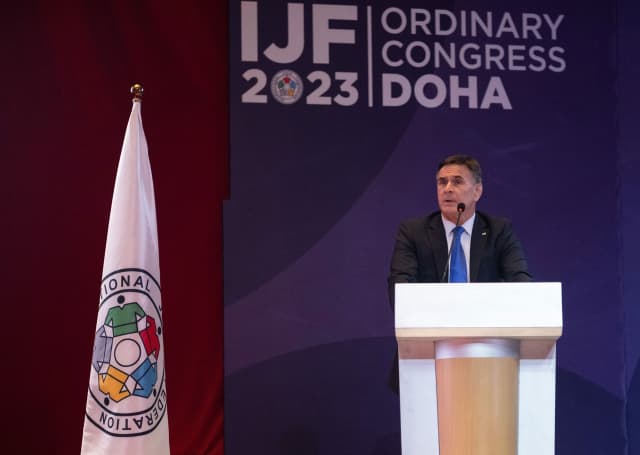He explained, "2021 was still strongly influenced by the pandemic restrictions and the Olympic qualification was prolonged until June 2021, closing at the World Championships 2021 in Hungary.
In that year we organised 16 IJF events though, including 1 Masters, 8 grand slams, 1 grand prix and there were 6 world championships. Over 60 competitions were organised for the future Olympic generation.
The Tokyo 2020 Olympic Games were a success. Judo was again 3rd in terms of participation of nations and for the first time, we had full gender equality during the qualification process. It was also the first time that we we had a mixed team competition, including an International Refugee Team. In the end we had a 51 to 49% ratio of men and women during the event, which we can be really proud of.
In 2022 we had 21 IJF events: 1 Masters, 9 grand slams, 2 grand prix and 9 world championships and again over 60 competitions were organised for the future Olympic generation. The new Olympic qualification began.
Today the World Ranking List counts more than 7,000 judoka from 169 nations, all considered as taking part in the Olympic qualification. The continental quota allows each continent to have many nations participating in the Olympic Games.
Once again, we focused on the IJF Refugee Team, which aims is have refugee athletes taking part in the Olympic Games in Paris in 2024.
The test event for Paris 2024 will take place this year from 29th to 30th August 2023 and the judo tournament in Paris next year will be held between 27th July and 3rd August 2024.
This year, the IJF will be involved with the organisation of the World Combat Games, with a mixed team event on 23rd October, in Riyadh, Saudi Arabia, a competition that will bring together 14 teams from 5 different continents. The organisers will finance tickets and hospitality for a total of 120 participants per sport."

